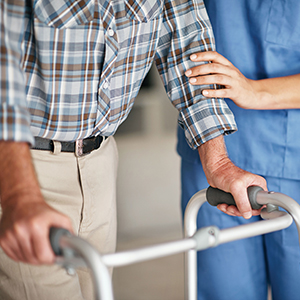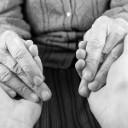Well-being
-
Caregiving With Confidence
Making Rest RoutineHealthy sleep habits should be an important part of self-care for caregivers.
by Aimee Swartz
-
From the Editor-in-Chief
Improving Health After TreatmentThe U.S. health care system must adapt to the needs of cancer survivors.
by William G. Nelson, MD, PhD
-
Staying Close Through Cancer
Cancer and its treatment can hinder sexual intimacy, but help is available. Talking about the problem is the first step.
by Cameron Walker
-
The Education of a Patient Advocate
Bob Riter explains how his breast cancer diagnosis set him on a path to find his calling.
by Bob Riter
-
Forward Look
Alternatives to OpioidsThere are multiple options for managing cancer-related pain.
by Bradley Jones
-
Healthy Habits
Carb ConnectionCould consuming fewer simple carbohydrates lead to better cancer outcomes?
by Lindsey Konkel
-
Healthy Habits
Make Your MoveExercising during or after treatment can improve your health and outlook.
by Brenda Conaway
-
Forward Look
The Devastating Impact of Muscle WastingCachexia is a factor in cancer-related deaths.
by Delia O’Hara
-
Caregivers Need Support Too
High-intensity cancer caregiving is associated with poor mental health, especially for caregivers who don't feel they're getting the support services they need.
by Jen Tota McGivney
-
2018 SABCS: Choosing the Right Treatment
Studies presented at the 2018 San Antonio Breast Cancer Symposium investigate when patients with early-stage breast cancer or precancerous breast conditions benefit from receiving less intense treatment.
by Kate Yandell














